
How to Get Promoted: What Does it Take to Reach the Top?
Sarah Johnston (SJ): Many studies highlight the significance of internal promotions for both employees and employers. According to a recent survey by the Pew Research Center, one of the primary reasons employees leave their jobs is due to the lack of advancement opportunities within the organization. Additionally, LinkedIn’s 2020 internal mobility survey suggests that companies with high internal hiring rates tend to retain employees 41% longer compared to those that predominantly hire externally.
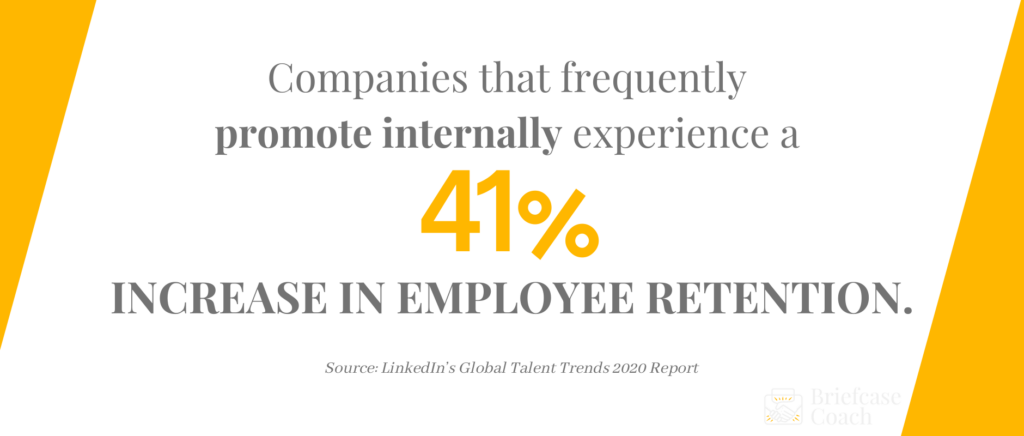
Given this context, I’d like to delve deeper into the concept of internal promotions. Arpad Szakal, an executive and leadership expert, currently serves as the Head of Aviation & Aerospace at Cormis Partners, a boutique executive search firm based in London. With his extensive background in recruiting and expertise in the career search field, I reached out to him to gather his insights on how to climb the corporate ladder and what it takes to secure an internal promotion. Additionally, we discuss the advantages for a company to continue hiring internally and fill their leadership positions from within their own ranks. Let’s get started…
Can you discuss the business case for why fostering internal advancement opportunities is crucial for maintaining a motivated workforce and how it contributes to overall employee morale within the organization?
Arpad Szakal (Arpad): Fostering internal advancement opportunities is not just a way to show appreciation to employees; it’s a strategic investment in talent management that can yield significant returns in terms of employee retention, engagement, productivity, and overall organizational success.
Internal advancement opportunities are a strategic move that can significantly benefit a company’s bottom line.
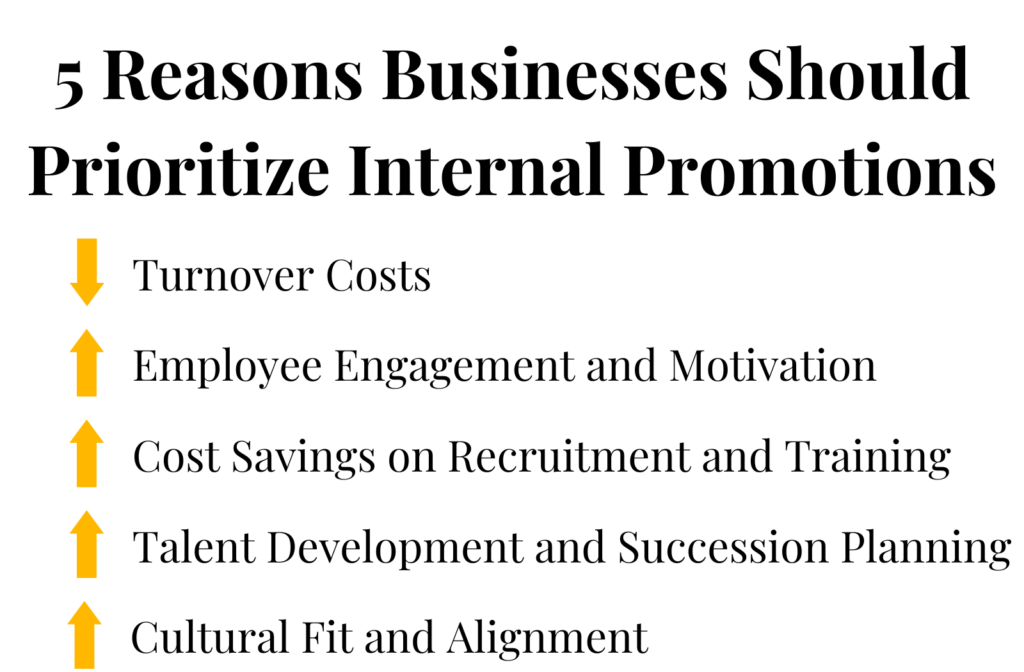
Here’s a breakdown of the business case for it:
- Retention & Reduced Turnover Costs: When employees see opportunities for growth and advancement within the company, they are more likely to stay. Turnover can be costly in terms of recruitment, onboarding, and lost productivity. By promoting from within, you retain institutional knowledge and avoid the expense of replacing skilled workers.
- Increased Employee Engagement & Motivation: Knowing that their hard work and dedication can lead to career progression, employees are more engaged and motivated to perform at their best. This can lead to higher productivity levels and better overall performance.
- Cost Savings on Recruitment and Training: External hires often come with higher recruitment costs and require more extensive training to get up to speed with company culture and processes. Promoting from within reduces these costs and ensures that employees already have a solid understanding of the company’s values and operations.
- Enhanced Talent Development & Succession Planning: Investing in internal advancement opportunities allows companies to identify and develop top talent from within their ranks. This not only ensures a pipeline of skilled leaders but also reduces the risk associated with unexpected departures at key positions.
- Better Cultural Fit & Alignment: Internal candidates are already familiar with the company culture, values, and goals, making them more likely to be a good cultural fit for higher-level positions. This alignment can lead to smoother transitions and more effective leadership.
SJ: In your opinion, what qualities do you believe are necessary for someone to be considered eligible for a promotion?
Arpad: As an executive recruiter, I observe many of these qualities that can make someone promotable in today’s ultra-competitive workplace.
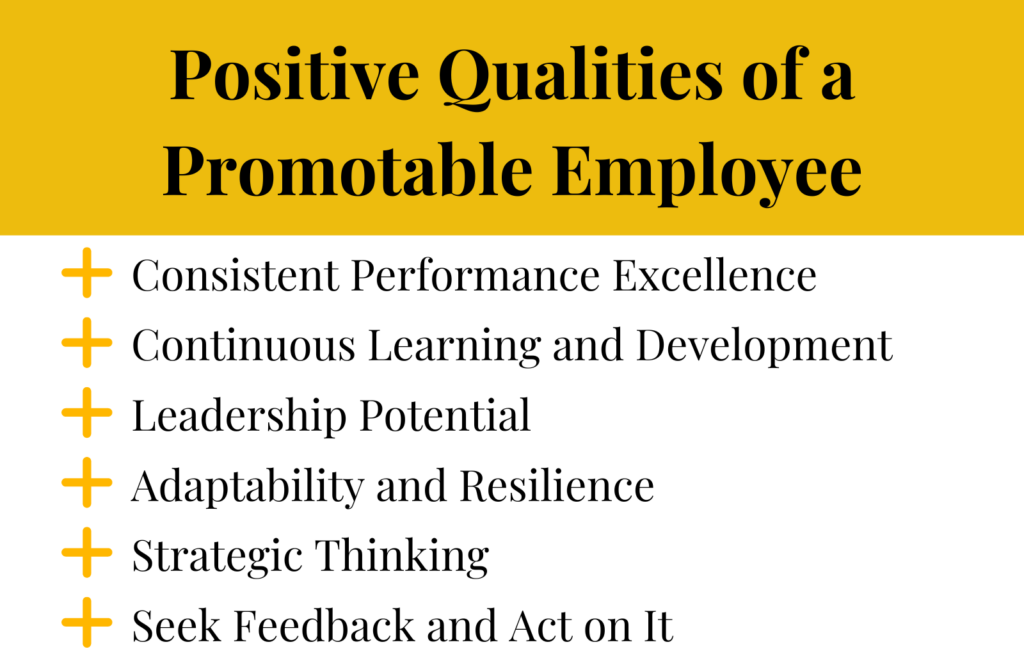
Some of the top qualities to adopt include:
- Consistent Performance Excellence: Consistently delivering high-quality work and exceeding expectations in your current role is fundamental. Set clear goals, prioritize tasks effectively, and consistently meet or exceed deadlines.
- Continuous Learning & Development: Actively seek opportunities to expand your skills and knowledge. Take advantage of training programs, workshops, and online courses relevant to your field. Stay updated on industry trends and best practices.
- Leadership Potential: Take on leadership roles, even in informal capacities. Lead by example, demonstrate initiative, and inspire others with your actions. Show that you can motivate and guide team members towards shared goals.
- Adaptability & Resilience: Be flexible and adaptable in the face of change. Embrace new challenges and demonstrate resilience in overcoming setbacks. Show that you can thrive in dynamic environments and maintain a positive attitude during times of uncertainty.
- Strategic Thinking: Develop a strategic mindset by understanding the organization’s broader objectives. Align your goals and actions with the company’s mission and vision. Think critically about how your work contributes to the business’s overall success.
- Seek Feedback & Act on It: Be open to feedback from supervisors, peers, and mentors. Actively seek opportunities to improve and grow based on constructive criticism. A-players show that they can learn from experiences and continuously strive for self-improvement.
SJ: One key to being promotable is having a high degree of social capital among your peers and sphere of influence. Other than being a “yes person,” what are some practical ways that professionals can gain social capital?
Arpad: Building social capital in the workplace is crucial for career advancement. However, it doesn’t mean saying “yes” to everything. Instead, top-performing professionals typically focus on cultivating meaningful relationships and authentically demonstrating their value to colleagues and their sphere of influence.
One practical approach is to actively engage in networking both within and outside the organization. Attend industry events, participate in professional associations, and join relevant online communities to connect with peers and expand your network. By building genuine connections and offering support to others, you can establish yourself as a trusted and respected member of your professional community.
Another effective way to gain social capital is to be a collaborative and supportive team member. Offer assistance to your colleagues, share your expertise, and celebrate their successes. By being generous with your time and knowledge, you build goodwill and foster a culture of reciprocity within your team. Additionally, actively seek out opportunities to mentor and support junior colleagues. Not only does this demonstrate your leadership skills and expertise, but it also helps to create a positive impression among your peers and supervisors.
Furthermore, demonstrating integrity and reliability in your interactions is essential for building social capital. Be true to your word, follow through on commitments, and act with honesty and transparency in all your dealings.
Building a reputation as someone who can be trusted and relied upon strengthens your social capital and enhances your professional credibility. By consistently demonstrating these qualities, you can cultivate strong relationships and position yourself for success in your career.
SJ: A good friend of mine recently interviewed for & was offered a promotion. She was offered a salary of 10% less than the person in the role before her despite the fact that she had significantly more experience & an extra degree. Wharton School professor Matthew Bidwell notes that this phenomenon, on average, results in a salary reduction of 18-20%. Why do you believe organizations tend to offer lower salaries to internal promotions, and what strategies would you suggest for internal candidates to advocate for fair compensation during the interview process, thereby avoiding being underpaid and undervalued?
Arpad: Organizations often offer lower salaries for internal promotions for several reasons:
- Firstly, they sometimes assume that internal candidates are already familiar with the company culture and processes, so they may be willing to accept lower compensation in exchange for the perceived security and familiarity of staying with the organization.
- Secondly, budget constraints or salary guidelines might limit the amount the company can offer for internal promotions.
- Lastly, there may be a perception that internal candidates should be grateful for the opportunity for advancement and may be less likely to negotiate for higher pay.
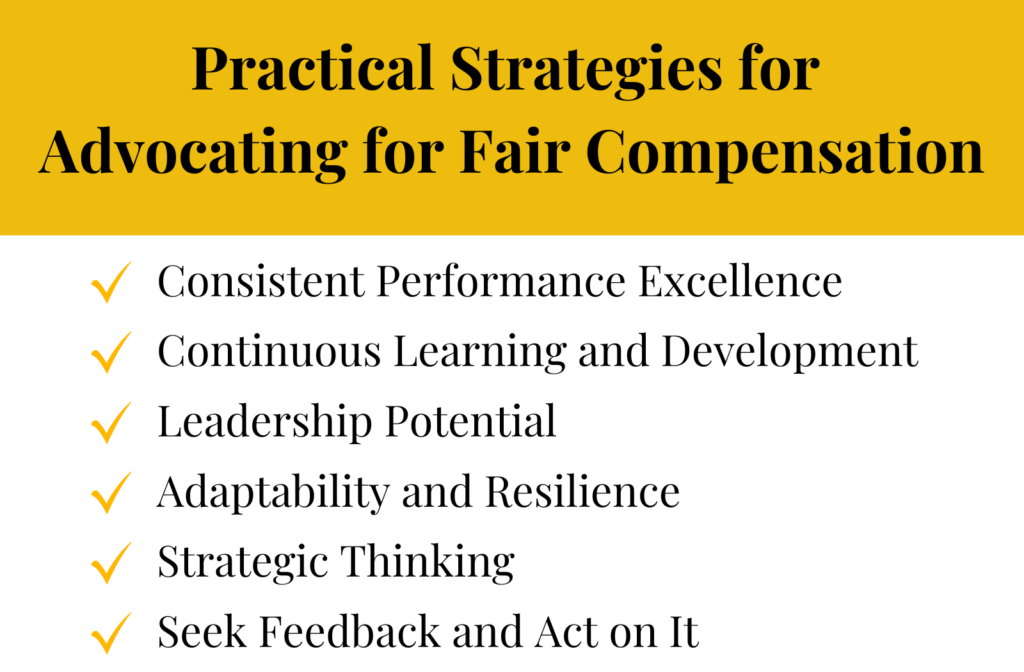
To advocate for fair compensation during the interview process for an internal promotion, here are some practical strategies:
- Do Your Homework: I’d recommend researching the market rates for similar roles in your industry and location. Use online salary comparison tools, industry reports, and networking contacts to gather information about typical salary ranges. This will provide you with data to support your salary negotiation.
- Highlight Achievements & Value Add: During the interview process, I’d also advise highlighting your achievements, contributions, and the value you bring to the role. Quantify your accomplishments whenever possible to demonstrate your impact on the organization. By showcasing your worth, you strengthen your position to negotiate for fair compensation.
- Prepare a Compelling Business Case: I suggest that you prepare a compelling case for why you deserve fair compensation based on your skills, experience, and the responsibilities of the new role. Be prepared to articulate how your expertise aligns with the requirements of the position and how you will add value to the organization in your new role.
- Emphasize Career Progression & Future Plans: I’d also recommend that you emphasize your commitment to the business and your desire for continued career growth and development. Highlight how fair compensation is essential for your long-term motivation and engagement. By framing the discussion in terms of your future contributions and potential, you demonstrate your value to the organization beyond the immediate role.
- Negotiate Strategically: Most importantly, I’d approach salary negotiations with confidence and professionalism. Be prepared to negotiate respectfully and collaboratively, focusing on finding a win-win solution for both parties. Consider negotiating other benefits or perks if the organization is unable to meet your salary expectations.
SJ: Follow-up question: How do organizations typically calculate internal promotions?
Arpad: When organizations decide on internal promotions, they typically consider several factors to ensure fairness and alignment with company objectives.
For example, businesses often assess an employee’s performance in their current role and their potential for success in the new position. Performance evaluations, feedback from supervisors, and demonstrated leadership qualities are key indicators used to gauge an employee’s readiness for promotion.
When considering internal promotions, the employee’s tenure with the organization and relevant experience could also be taken into account. While tenure alone is not the sole determining factor, long-term employees who have demonstrated loyalty and commitment may be given priority consideration for advancement opportunities.
Also, businesses also assess how the promotion aligns with their strategic objectives and long-term vision. They consider how the employee’s skills, expertise, and leadership abilities contribute to the achievement of company goals and priorities.
Salary considerations for internal promotions vary depending on factors such as budget constraints, market rates, and internal salary guidelines. While promotions may come with a salary increase, the extent of the raise may be influenced by internal equity considerations and budgetary constraints.
SJ: I’m sure you’ve heard the expression, “last one in, first to go.” In a period of economic uncertainty, sometimes the “safest” career move one can make is internal. According to my LinkedIn survey of over 4,600 members, 52%, an increasing number of individuals expressed a preference for internal promotions in 2024 compared to previous years, notably surpassing figures from the tumultuous period of 2021, widely referred to as the ‘Year of the Great Resignation.’ How do you interpret this shift in preference towards internal promotions, and what factors do you believe contribute to this trend?
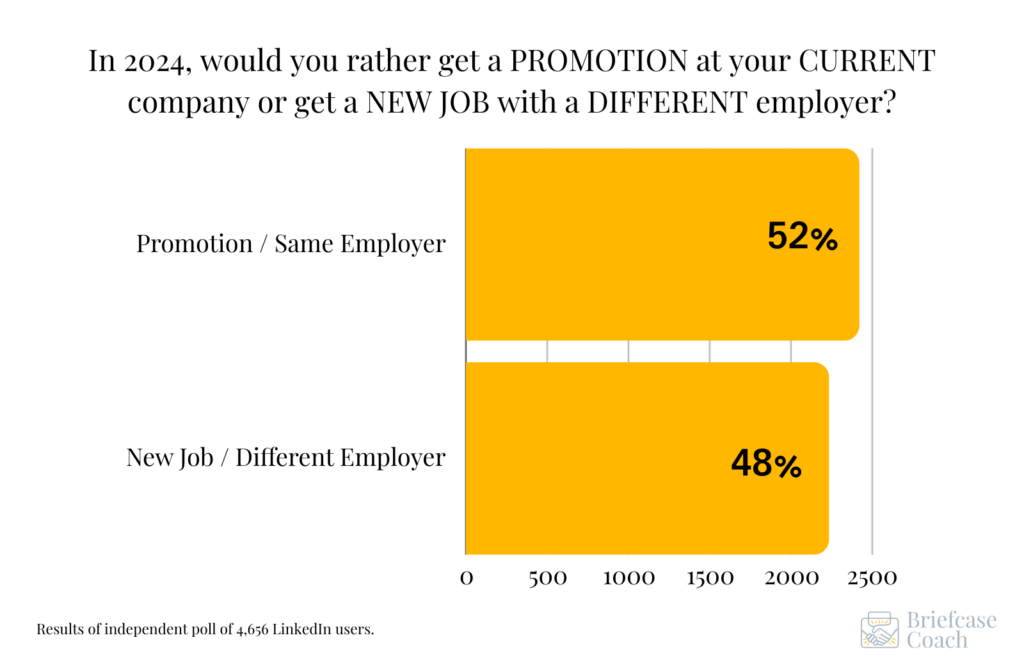
Arpad: The trend you describe signifies a growing recognition of the stability and security offered by internal advancement opportunities, particularly in uncertain economic times. In the wake of global disruptions and market volatility, professionals across sectors are increasingly prioritizing the preservation of job security and continuity over external job-hopping strategies.
Several factors contribute to this notable shift in preference. Firstly, internal promotions offer a familiar environment and a deeper understanding of organizational dynamics, reducing the risk associated with transitioning to a totally new company during uncertain times. Employees value the continuity and stability provided by staying within their current organization, where they have already established networks and a track record of performance.
Moreover, internal promotions often come with a sense of loyalty and investment from the employer, as they recognize and reward the contributions of existing talent. In contrast to external hires, internal candidates are already integrated into the company culture, possess institutional knowledge, and require less time for onboarding and ramp-up. This efficiency and familiarity are particularly appealing in times of economic uncertainty when companies may be operating with leaner budgets and resources.
Additionally, the shift towards internal promotions may reflect a broader reassessment of career priorities and values among professionals. As individuals seek greater work-life balance, job satisfaction, and alignment with personal values, the prospect of upward mobility within a familiar organizational context becomes increasingly attractive. Internal promotions offer a pathway for career advancement while maintaining a sense of stability, continuity, and professional fulfillment.
Overall, the preference for internal promotions in the face of economic uncertainty underscores a strategic approach to career management, where individuals prioritize stability, continuity, and alignment with organizational values.
SJ: Last question… I’m a student of careers and job search. I’m curious to know how you landed YOUR job. Did you apply for a position online, network your way in, or get a cold call from a recruiter?
Arpad: Prior to my career in executive search & leadership assessment, I had the privilege of serving within the Aviation Departments of two leading international law firms in the heart of London. My responsibilities encompassed a spectrum of EU regulatory cases, with a particular focus on passenger rights, alongside navigating the intricate terrain of aviation liability matters spanning diverse jurisdictions.
However, my most recent law firm job was a contract position and the HR team at the firm introduced me to the world of recruitment. I found myself drawn to the intricacies of talent acquisition and the art of executive search.
Through a combination of perseverance and fortuitous networking, I embarked on a journey that ultimately led me to Cormis Partners. It was through maintaining a meaningful connection with our MD, Florian de Cormis, over the years.
Reflecting on my trajectory, I’ve realized that my career has been shaped not only by my mastery of my craft but also by the power of authentic relationships and my willingness to explore uncharted territories.
In an era dominated by online applications, my story reminds us that cultivating genuine connections and seizing opportunities beyond the confines of traditional pathways can lead to success and career satisfaction.
About Arpad Szakal
Arpad has a successful track record delivering senior-level searches for clients that include FTSE 100, Fortune 500 and DAX 30 companies, as well as private equity firms and their portfolio companies.
Arpad is an active contributor to the latest thinking on leadership in the aviation arena and serves as a regular speaker and moderator at industry conferences, having addressed audiences globally. In addition, he has authored several research papers on leadership and published numerous articles in aviation and aerospace industry trade media.
Arpad holds an Advanced Master of Law in Air & Space law from the University of Leiden in the Netherlands.
He speaks English, Hungarian, German and Spanish and has worked in more than 40 countries around the globe.
Arpad is an ICF-accredited executive & leadership coach and a qualified solution-focused therapist. He is also a certified facilitator of the Hogan Leadership Assessment Suite.
Arpad invites you to connect with him on LinkedIn and continue the discussion.

